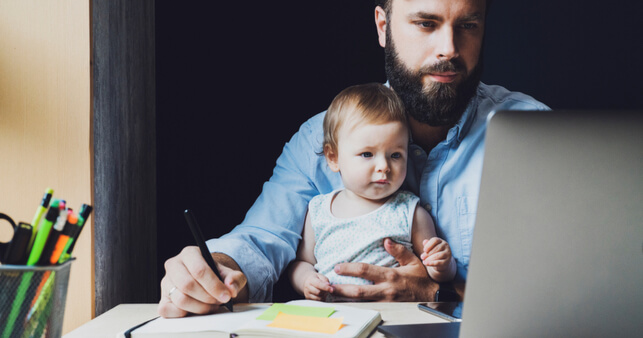
Paid parental leave
Paid parental leave (PPL) is an initiative by the Government that provides eligible mothers and other primary carers with funds to compensate for the drop in income when they take time off to care for their child. Some employees may be entitled to Government-funded paid parental leave in New Zealand while they are not at work and caring for a new child.
The parental leave payments available from the Inland Revenue Department (IRD) increased on 1 July 2022.
Do I have to pay in addition to Government parental leave?
No, employers are not required to offer employees a contractual entitlement to additional parental leave or parental leave payments. Although Inland Revenue may pay them in addition to anything they may receive from you. Similarly, even if they are ineligible to receive paid parental leave from you, they may still receive some payments from the Government.
Who can receive parental leave payments in New Zealand?
An employee must meet the eligibility criteria before they can receive parental leave payments. This means they must have been employed for at least an average of 10 hours per week by any employer over any 26 of the 52 weeks immediately before their baby’s due date, or the date they become the primary carer of a child under six years of age.
An employee will need evidence that:
They work for a New Zealand employer
They pay income tax to New Zealand
Their employment relationship is subject to New Zealand employment law
It does not matter how many employers the employee had, or if they were self-employed. However, they need to be eligible either as an employee or self-employed person.
How long is the period of paid parental leave?
Parental leave is paid for one continuous period of up to 26 weeks (this was increased from 22 weeks as of 1 July 2020). While parental leave can be transferred between partners or spouses, whether it is transferred or not, the parental leave payment must be made during one continuous period.
However, there are some restrictions on when it can start and the latest point it can be taken.
Parental leave payments begin on the earlier of the date the employee commences parental leave or the date the baby is born or on the date the employee becomes the primary carer of a child.
Employees can choose to start their parental leave up to six weeks before the expected due date of the baby, or the date the employee intends to become the primary carer of a child. Although, there are times where an employee may start parental leave earlier than this, such as where you, or their doctor or midwife, deem this to be appropriate for health and safety reasons.
The latest point at which the parental leave payment period can start is the date the child is born, or the date the employee becomes the primary carer of a child. If an employee applies later than this, the payment is backdated to this point.
Paid parental leave form
Regardless of the eligibility criteria, to receive any parental leave payment your employees will need to fill in an application form and provide it to Inland Revenue. Encourage your employees to apply as soon as possible, as it can take Inland Revenue some time to process the application.
As an employer, if you are the sole employer being used by your employee for parental leave payment eligibility you may be asked to confirm their employment and income details before signing the application form. You are also required to give your employees information about parental leave payments they may be eligible to receive as part of your response to their request for parental leave.
To begin an application, your employee can use Employment New Zealand’s parental leave eligibility tool.
Annual holidays and paid parental leave
Annual holidays can be used prior to the arrival of a child. For any annual leave that the employee becomes entitled to during parental leave or in the 12 months after they return from work, that annual leave is calculated only at the rate of the employee’s average weekly earnings (unless the employer agrees to a higher rate).
Partner’s leave
Fathers or partners are entitled to:
1 week of unpaid leave if they’ve worked for you for six months for at least an average of 10 hours per week, or
2 weeks of unpaid leave if they’ve worked for you for 12 months for at least an average of 10 hours per week.
They can take this leave between 21 days before the expected birth, or the date their partner intends to become the primary carer, and 21 days after, unless you and the employee agree otherwise. This leave is in addition to any other parental leave they’re sharing with their partner.
Employees are permitted to work up to 52 hours for their employer while on paid or unpaid parental leave. However, both the employer and employee must agree to this.
Returning to work
An employee needs to let their employer know at least 21 days before the end of their leave period whether or not they’re going to return to work.
If an employee is unsure about coming back to work, you could:
Explore a flexible work arrangement, such as remote work or job sharing.
Give an incentive for their return to work (for example, offering a cash bonus once they’ve returned for a set period of time).
What should you do?
When an employee applies for parental leave, you should:
Make them aware of what their parental leave entitlements are.
Approve or decline their request within 21 days.
Confirm the employee’s leave arrangements in writing.
Once you know how long the employee will be on parental leave for, you can decide how to temporarily fill their position. You can hire someone on a fixed-term agreement, or you might want to use an employment agency as a short-term solution.
For further advice on parental leave, call Employsure – day or night – on 0800 568 012.


